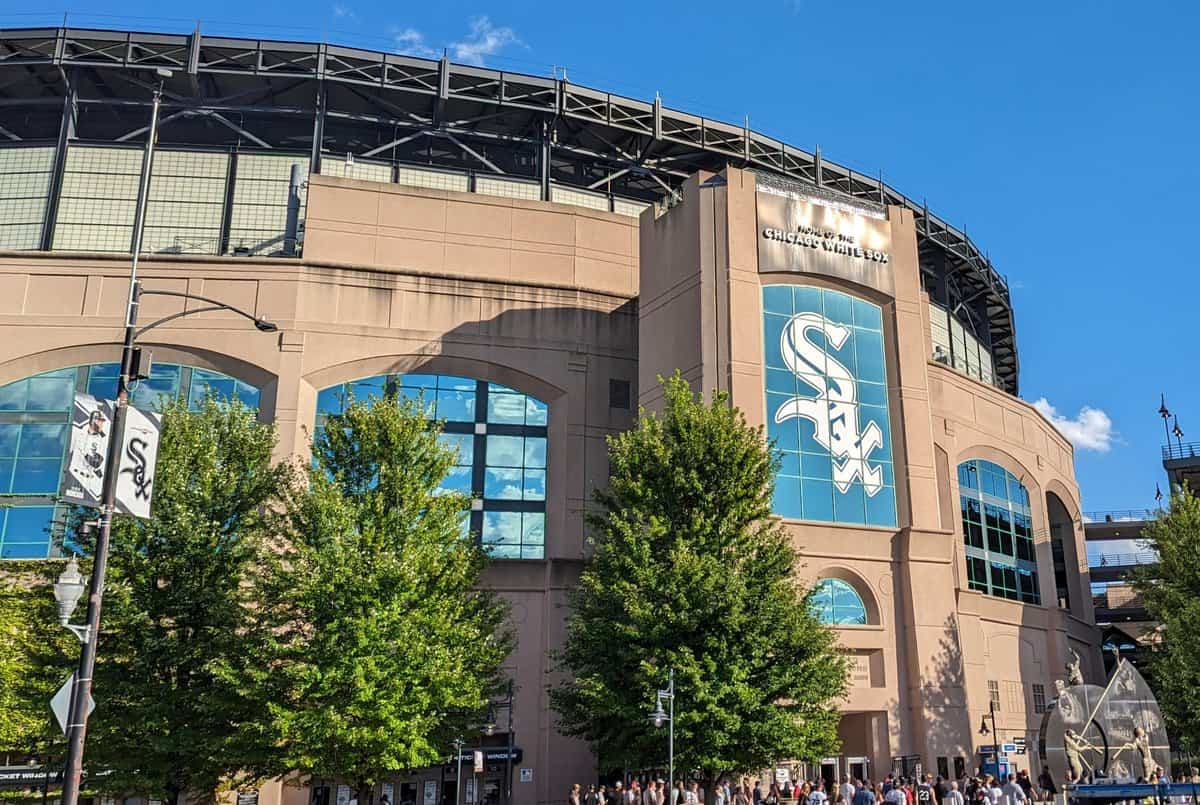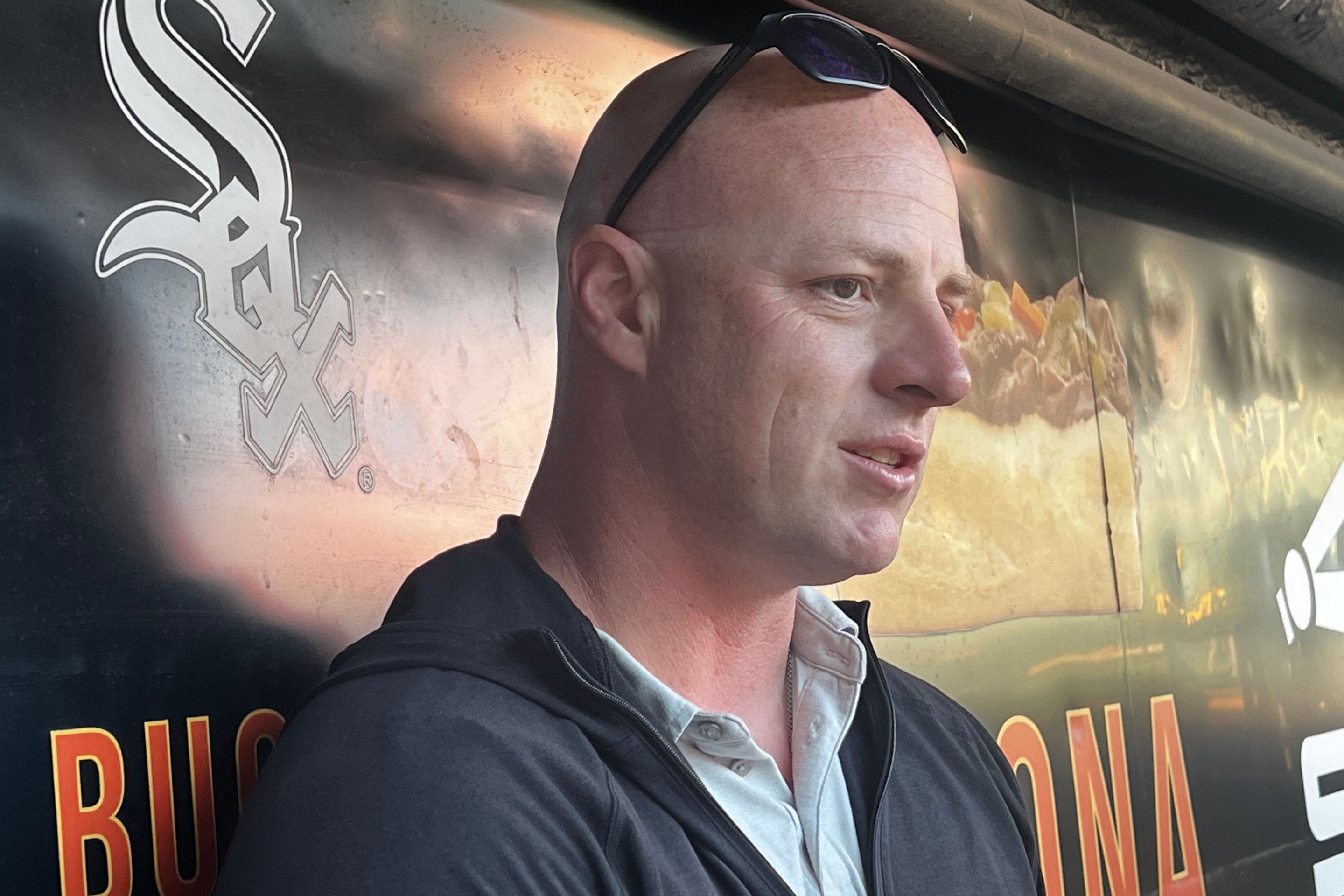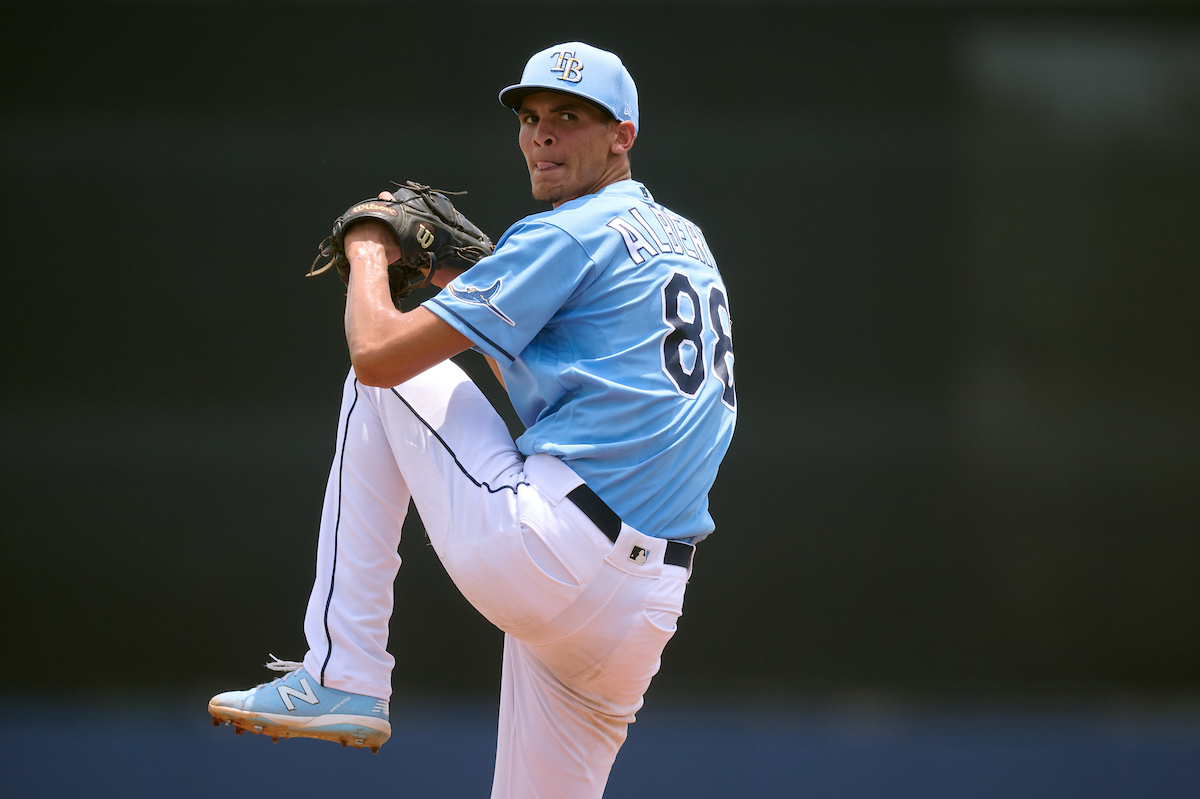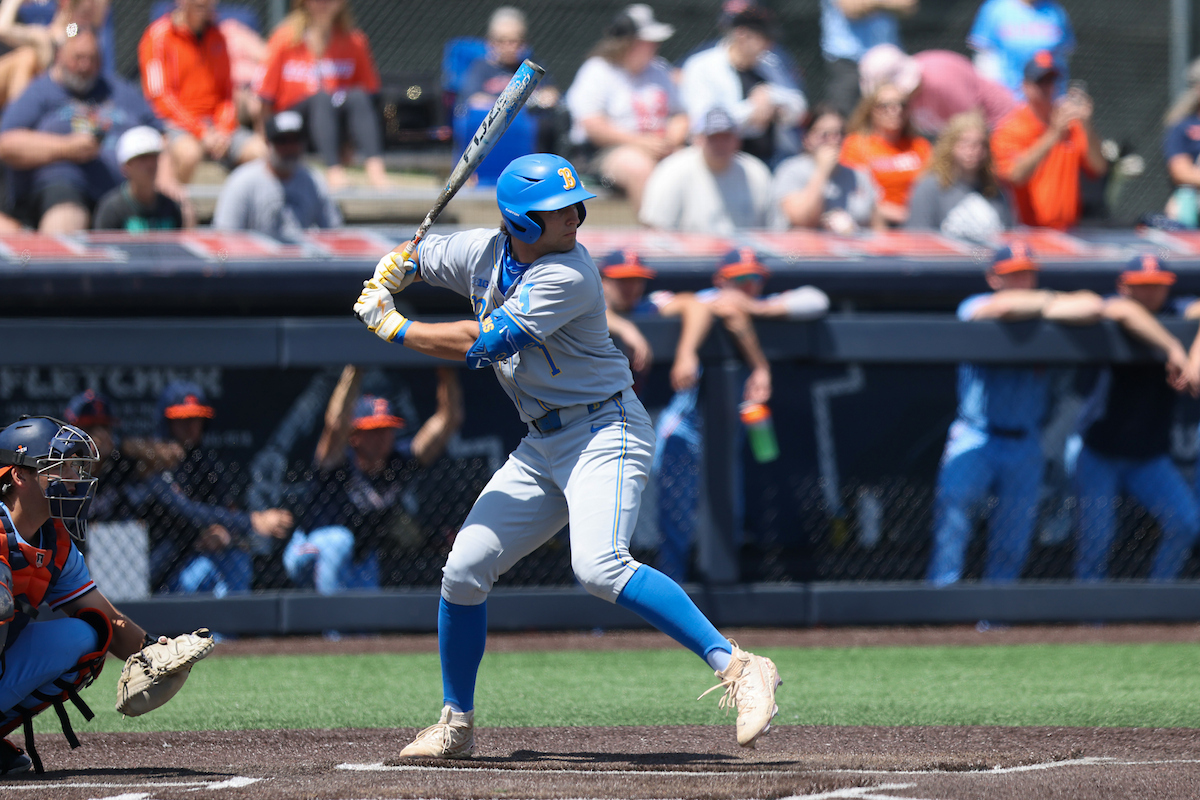Chris Getz and Bob Nightengale teamed up to deliver a depressing one-two punch to White Sox fans over the weekend, and one that could paint a pretty grim picture of how much the White Sox are willing to invest in the 2025 product.
During Friday's broadcast, Getz told John Schriffen and Steve Stone, "We're not going to be working heavy in free agency. We've got guys on the field right now who need to improve their game. A lot of young players who just need to make adjustments to be more productive."
Nightengale followed with an unusually brief White Sox item in one of his colossal Sunday notebooks.
The Chicago White Sox, who should break baseball’s all-time record of 120 losses this week, plan to cut payroll in 2025 after sustaining substantial losses in revenue during this horrific season.
Taken individually, these updates aren't fun, but they are defensible. The White Sox's idea of "working heavy" in free agency hasn't paid off because they're limited to players with inherently risky profiles. They signed a 31-year-old Yasmani Grandal, a Dallas Keuchel whose fastball averaged 89 mph, an Andrew Benintendi coming off a five-homer season. Grandal was the only one who made it to the halfway point of his contract before collapsing, and yet some see his contract as the worst in franchise history because they're not accustomed to that degree of inefficiency, and the White Sox have been terrible at mitigating failures.
If Getz wanted to have more ducks in a row -- either on the 40-man roster or in the development/evaluation ranks -- before making a push on players who can't be counted to move the needle after two or three years, I wouldn't blame him for pivoting to conscientious consumption. Sure, it undermines Jerry Reinsdorf's public rationale for hiring Getz without interviewing anybody else, but I've already accepted that he couldn't think of a more convincing excuse to hide his laziness. At this point, it's better if Getz approaches the problem like an externally hired GM would, rather than being obligated to service the lie.
Likewise, the White Sox should be expected to end up with a far lower payroll number in 2025 because they're short on good players, and they get to stop paying several of the bad investments. Eloy Jiménez is gone, Yoán Moncada's obligations are reduced to a $5 million buyout, Leury García is no longer commanding a top-five salary despite being released two years ago, and Mike Clevinger should be gone for real this time. Throw in a likely non-tender of Nicky Lopez, and you can count the significant commitments on one hand.
When you start tabulating how little the White Sox will owe the incumbent projected 2025 roster, however, that's when Getz's pessimistic forecast becomes more troubling.
Here's an extremely back-of-napkin look at the White Sox's Opening Day payroll:
- Andrew Benintendi: $16.5M
- Luis Robert Jr.: $15M
- Arbitration-eligible players (7): $15M
- Buyouts and deferred salaries: $10M
- Pre-arb players (17): $13M
- Total: $69.5M
That's nearly a 40 percent reduction from the 26-man payroll the White Sox ran on Opening Day, and if they trade Garrett Crochet and possibly even Luis Robert Jr. as the rumors would have you believe, then you can take up to another $20 million off the payroll, depending on what Crochet's arb figure is and whether the White Sox would get immediately rosterable players back.
If you take Getz and Nightengale at their most literal, the White Sox aren't going to make much use of the vast amounts of payroll space they've opened up, which means they're kneecapping their ability to problem-solve.
If you want to reserve judgment, there are different ways to work besides "heavy." They're so far afield that spending $50 million might not register -- especially when it's $50 million in contracts Reinsdorf will approve -- but that means they'll have to supplement whatever players they do sign with a willingness to be transactional in other areas, like trades, waiver claims, potentially undervalued markets like the one that produced Erick Fedde. The mileage may vary when parsing "working heavy," like avoiding three-year contracts to buy bulk on fliers. If they're not breaking a sweat this winter, they're not working hard enough.
As for Reinsdorf, he issued an underwhelming public statement last week that fell well short of speaking to fans' frustrations, or his own previously expressed disgust. The guy who called the 2023 season "a nightmare" and "embarrassing" is suddenly at peace with a season that's threatening the modern MLB record for losses, even though the talent on hand hasn't provided a path out.
In an article about his weekend being around baseball's worst team, Jeff Passan offered a couple of reasons for Reinsdorf's attitude beyond the standard cynical interpretations. One is the shift from Pedro Grifol to Grady Sizemore, whose attitude toward guiding young players through such staggering failures is said to be far healthier.
The other involves a name I've only seen listed in the front office directory:
When owner Jerry Reinsdorf promoted Getz to GM after firing longtime executive vice president Kenny Williams and GM Rick Hahn last August, Getz hired an array of outsiders, an unfamiliar approach for an organization that was as insular as any at the behest of Reinsdorf, whose loyalty to employees has been a hallmark as well as a detriment. Brian Bannister, Getz's former teammate in Kansas City and a longtime pitching guru, took control of the system's arms. Josh Barfield and Paul Janish, both former big leaguers, are central in player-acquisition and player-development roles. And Brian Mahler -- a former Harvard lacrosse player who went on to become a Marine and Navy SEAL before earning a law degree from Georgetown -- joined the White Sox as director of leadership, culture and continuing education.
Mahler, who came into the organization having never worked in baseball, is at the heart of the overhaul in Chicago's front office, and a committee headed by Mahler is expected to recommend a suite of changes for the organization to institute in the coming years. It's a multiyear project with a focus, sources said, on optimizing resources, scaling processes and connecting departments, and Reinsdorf, who is 88, is backing it after years of wanting to win now.
This is ... interesting, with full understanding that interesting has little nutritional value as a standalone adjective. This emphasis on Mahler reframes Getz's role as the single decision-maker, because while he may be the one calling all the baseball shots, it suggests that he's enlisted help in trying to get Reinsdorf to break self-defeating habits.
It also potentially invites dysfunction, because giving an outsider with impressive credentials a vague title and a disproportionate amount of sway is a familiar headache for a lot of businesses, and for a sports-specific example, it's been been listed as one of the reasons the Padres' performance seldom matched the levels of investment.
Late last season, Ken Rosenthal wrote about how A.J. Preller hired Don Tricker from the All Blacks New Zealand rugby team to ostensibly oversee medical departments, but his presence grew into something a lot more amorphous and controversial.
Almost six years after his hiring, many current and former Padres players, coaches and other employees continue to express consternation about Tricker’s responsibilities. Tricker, especially early on, frequented the clubhouse and sat in on player and staff meetings, quietly taking notes. Some believe he is effectively a spy for the front office. (The Padres do not allow front office employees to speak to the media without permission.)
“I don’t know what Don does, honestly,” one former front office staffer said.
“All he was doing was judging,” the ex-coach said. “He never provided any feedback to any coach or player.”
Not everyone had a poor experience with Tricker. One former staffer said Tricker, as an outsider to the sport, regularly posed thought-provoking questions — why, for example, did the Padres take batting practice that did not replicate the intensity of in-game pitching?
According to multiple members of the baseball operations department, Tricker originally said he hoped to get employees more time off to spend with their families. However, those employees said such assurances gradually disappeared while Tricker’s boss exerted his influence throughout the organization.”
Then again, the effects might've been overstated. Tricker is still in San Diego's front office, and a year later, Rosenthal is writing about how the 2024 Padres are Preller's finest work, with no mention of Tricker whatsoever. Losing exposes rifts, and winning cures them.
The comparisons to the Padres are premature, of course. The White Sox have sunk to such depths that there's value in doing things differently for the sake of different, because even immediate backfiring would provide some variety in ugliness. Also welcome is any support for the notion that the White Sox's foundation-building is actually active construction and not reliant on the mere passage of time, and that they'll act differently if and when they get back to contending.






